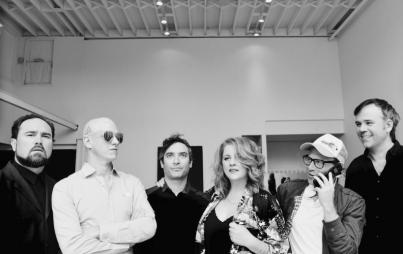
Lavish your adoration onto my friends, the rad lady and gender non-conforming folk who make up the resistance against #Gamergate. Check out my other interviews, with Leigh Alexander, Soha Kareem, Aevee Bee, Toni Rocca and Mattie Brice, by clicking on the little purple words.
Lana P is on my team. I can’t think of a better way to put it. If you want to imagine the future of “queering relationships,” picture your hand being placed in jello and having “woooooo you are touching brains” whispered into your ear in unsettling falsetto.
In the year and change we’ve known each other, the role and rhythm of our relationship has been caught in an abrupt shuffle. Crush. Collaborator. And now colleague. One is not a concession to the decline of another—shit is really fucked up for queer women on social media, whether you’re into games or not. In a perfect world we’d all get to make every mutual aspiration a reality—some days. Others, a “perfect world” means jamming a railroad spike in your head to shatter the shuttering shitstorm of bitch-cunt-I’ll-rape-yous that light up every means of digital communication.
So: Take what you can get and come back for the rest later.
When I was getting to know Lana, I would send her video-game inspired haikus—at first to cheer her up, but later to make manifest her discerning imagination. Excitebike today, NBA Jam tomorrow. Sometimes our idea of play is overplayed. Even a woman in Montreal closing her eyes and saying “OK, when I open them I want there to be a poem about Star Fox” can be a radical foray into cooperation and trust.
A career change and hospitalization derailed OK PRETENDO, our e-zine. I’ve come back for it: Throughout this article you’ll see her vivid visual manipulations interlaced with some haikus I wrote about games she liked. An exercise in flirtatious excitement. An affection unaffected by time and rule changes made on the fly.
I don’t blame people who are sitting out of the fight. They have their reasons, and we have ours. I only hope that they’ll come back for us when they think the coast is clear.
Last year, my birthday present to myself was to read your book, Ghosts in the Machine, over several bowls of pho. What sparked your affection for glitches in games? Is the name of your blog, "Sufficiently Human," a commentary on the fallibility of programs and technology?
It’s hard to pinpoint one thing that sparked my love for the glitch aesthetic, just in general. At least for the book, I can say that my story was inspired by a bug I encountered while working as a game tester one summer.
I’m probably bound for eternity by the War and Peace-sized non-disclosure agreement I had to sign to never reveal the game in question, but I found an out-of-world bug where the protagonist essentially fell through a seam in the world and sort of floated around in nothingness, and I was really taken in by the beauty and weird metaphysical and ontological questions implied by game bugs. I also saw them as these apt metaphors for emotional conflict and a neat way to focalize a character.
So, to make a long story short, I had been holding onto an idea for a short story for something like two or three years before I just decided, fuck it, why not dedicate a book to those metaphors?
That being said, I’ve developed a real soft spot over the years for experimental art in general—things like Dadaism and abstract expressionism and projectivist poetry—and I’ve had a long-lived love affair with punk music. So I think I’ve always gravitated toward art which pushes the limits of its respective medium’s conventions, and tries to use those subversions as a way to ask questions about the human condition and our place in the world.
I’ve more recently been inspired by people like Liz Ryerson and Michael Brough and Andi McClure and a number of artists who show up in my writing a lot. I generally think virtual worlds are great for those aesthetic and formal experiments, first of all because they can represent any space you want, and secondly because they’re so goddamned delicate and fall apart all the time.
Videogames in and of themselves are such a weird and broken mishmash and when the seams break open I feel like I’m engaging with a vulnerability—of the system and also of the creator. Those flaws are intimate and powerful and are just these really fertile sites for emotional truth.
As for the name, Sufficiently Human, it’s from a Tweet I made sometime ago. I don’t remember the context of it very clearly but yeah, it’s a bit of a tongue-and-cheek jab at this idea that games are natural “empathy machines,” as Merritt Kopas would call them.
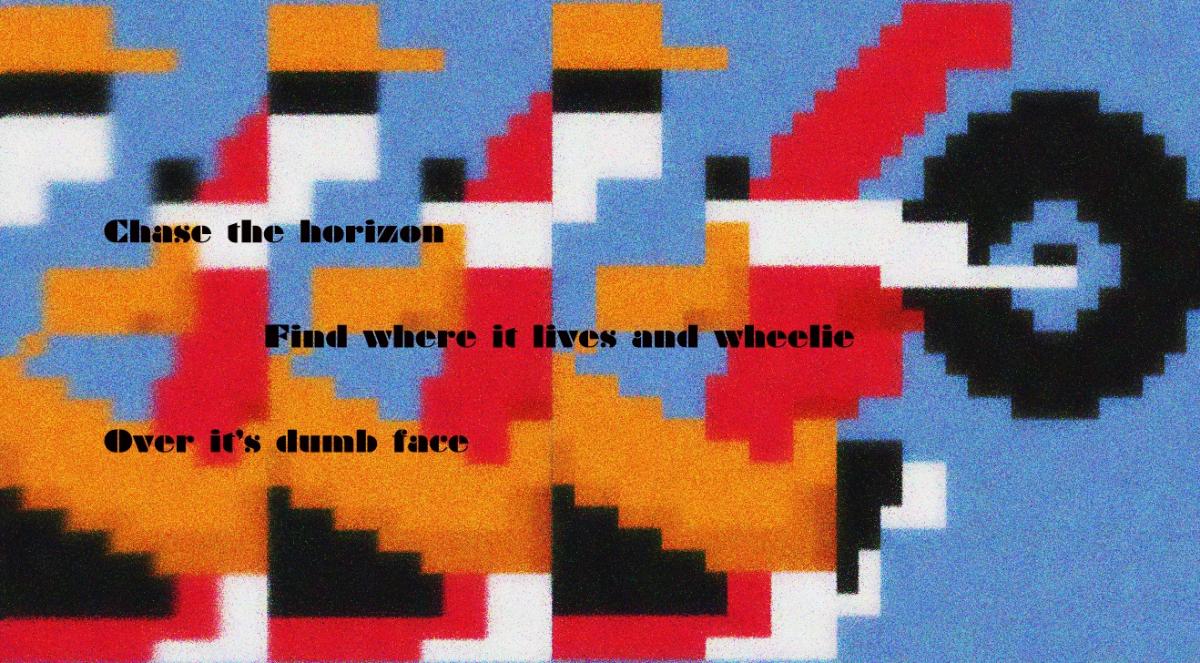
Your work is funded through Patreon. Does having a collective of funders, some of whom you know personally [writer's note: I funded Lana for several months before I quit my tech industry job] affect the direction and content of what you write in a conscious way?
In the sense of trying to appease anyone, definitely not.
This whole idea that having direct donors or subscribers is necessarily more of an influencer than being funded by corporate sponsors and having an executive editorial staff with veto power over your work is ludicrous.
(If you can’t tell, I’m still peeved that Patreon is being painted as “dirty money” as if arts patronage hasn’t existed for centuries.)
In fact, the great irony here is that having direct support—some of it public and some of it anonymous—means that these are people who are open to whatever I’m going to write. I don’t have to abide by someone else’s sensibilities and I don’t have to temper or water down my views in order to conform to a general site culture. Not that that’s always a bad thing, and not that it’s stopped other writers from speaking their minds necessarily, but it’s very liberating that I don’t have to play the pitching game or play the passive-aggressive competition game with other women for the limited slots available to us.
I get to write 6,000-word tracts on the playful qualities of poetry and I don’t have to worry about virality too much because the people who want to support me are already collectively giving me way more for my trouble than any ad-funded site even can.
I know this is a catch-22: To get to this point you need to build up at least enough of an audience to make a living, and that can mean (at least in my case) willingly impoverishing yourself for a few years and losing hope that you’ll ever be hired and offered stable pay. It means there’s a huge supply of writers for the demand, and that’s a shame because there’s a lot of unread talent. But I’m optimistic for the growing alternative press for games criticism, especially when it comes to journals and magazines like Zeal and Five Out of Ten and The Arcade Review (where I recently became a staff writer).
I’m also pleased to see that games have permeated culture enough that there’s less and less of an exploitative “games press” and more of a place for games on general purpose sites. This doesn’t solve the problem of new journalism in general but it does mean that there are more options available to writers than the corner behind wet paint that the games press currently represents.
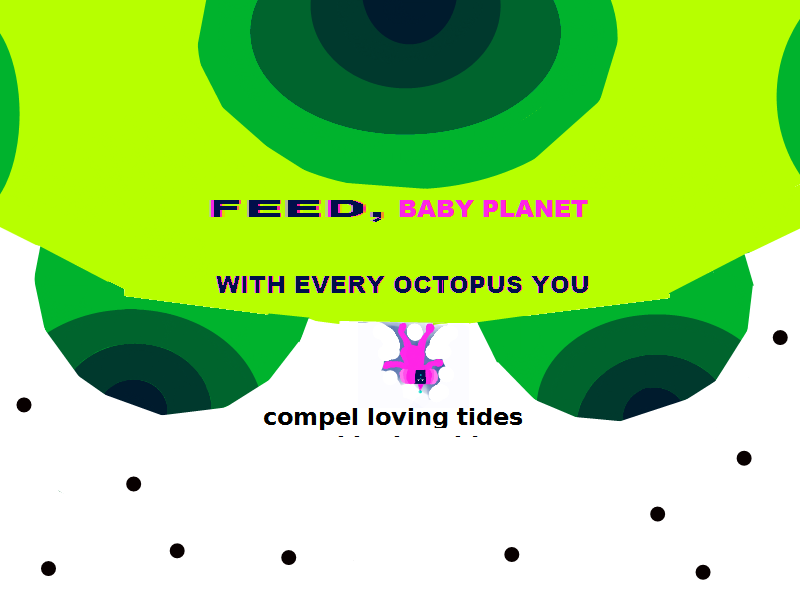
In your essay on the corset you wore at GDC '14, you touched on the politics of femme fashion in gaming spaces. Do games have a problem with femmephobia? Do you enjoy being seen, or is it a necessity to resist misogyny?
So, first of all, yes, games definitely have a problem with femmephobia. A “strong” female character is invariably sort of masculinized—just look at the differing responses to the new Lara Croft design versus a character like Bayonetta, especially from male critics, and you see a kind of weird discomfort and alienation from feminine figures as potentially empowering. A good real world example was Maddy Myers’s Paste piece on femmephobia in games culture and years of feeling the need to “just be one of the guys” and not get gussied up “for attention.”
I think there’s a lot of slut-shaming inherent in that—Maddy’s really great at articulating that—and a lot of misunderstanding of the ways we’re punished simultaneously for being too sexual and not sexual enough. As if the only reason to do either is for external approval. And this says nothing of other genders which choose to present as femme, and the ways in which femininity is coded as weak, as pathetic and as worthy of suspicion.
In fact it was in talking to Maddy and Christine Love about this prior to my foray into GDC that helped me realize that, dammit, I like dressing feminine. Even my butchier clothing usually has a little feminine flair to it.
And so in some ways, yes, there was a conscious decision to resist the totalizing masculinity often implied at gaming conferences, and to proudly wear my femininity as something I can be proud of. Fuck it, I can talk about how games propagandize capitalism and I can do it in a corset and heels and I still expect to be taken seriously. That shouldn’t be unreasonable.
But do I also like being seen? Oh, hell yeah. I think a lot of people do, I think it’s a natural impulse. But there are these ways in which women are specifically put down as “attention-seeking” and “needy”—in fact, one of the worst critiques I got from a male peer made those specific claims. It’s complicated because I see this desire to be seen, this bit of exhibitionism in me, and I see its relationship to power and how being seen can be understood both as reifying stereotypes about women and as breaking them. I guess I just wanted to have my experience on my terms, to not just be seen but to be seen in a particular way, as feminine and as confident and worthy of respect. How people choose to classify me isn’t something I can control.
But whatever, I looked amazing.
We often bonded, back when we had time to Skype, about the importance of domestic comforts. Do you have a "I like this person a lot and to show it I will cook them this" type of dish in your repertoire?
I have it on good authority I make one hell of a cheesecake, which I guess is fitting given the previous question. But I generally just like to cook for people and if you put in a request I’ll try to make it happen.
So: Let's talk ethics, like, actually talk about ethics in games journalism. If we as writers and journalists are expected to disclose potential conflicts of financial interest, shouldn't we also disclose conflicts of ignorance? Should journalists with privilege disclose when they're writing about issues and people beyond their understanding? Because it happens a lot.
Absolutely. It frustrates me to no end that writers in the games industry seem largely averse to citing things. More specifically, I see a trend among the slightly more protected class of employed writers in this industry to co-opt issues that they clearly know very little about.
I suppose they’ll argue that it’s to shine light on the issue, but I always get the sense there’s this cynical opportunism at work for the writer to shine light on themselves. And it strikes me as a bit selfish that some folks will do this when they already command considerable audiences. And, look, it would be fine if, first of all, there was some acknowledgment that the writer is out of their depth, but also some care taken to do the work. Like, you have to talk to people. You have to read people’s work—and for the love of god, credit them—particularly on sensitive issues concerning marginalized people. This should be common practice and should be taken as a basic level of consideration, but it’s not.
I don’t want to name-and-shame anyone in particular, although I have some pieces in mind. But you’re right, it’s a problem.
And you know? With what’s going on right now, it makes this issue nearly impossible to talk about. And I think to maintain a healthy discourse, we kind of have to. We have to be able to address our own problems in games writing and there’s this harmful idea going around that everyone is a grifter and a shill. So a crucial discussion about ethics and due diligence is being stymied for years to come because we first need to defend our right to even exist.
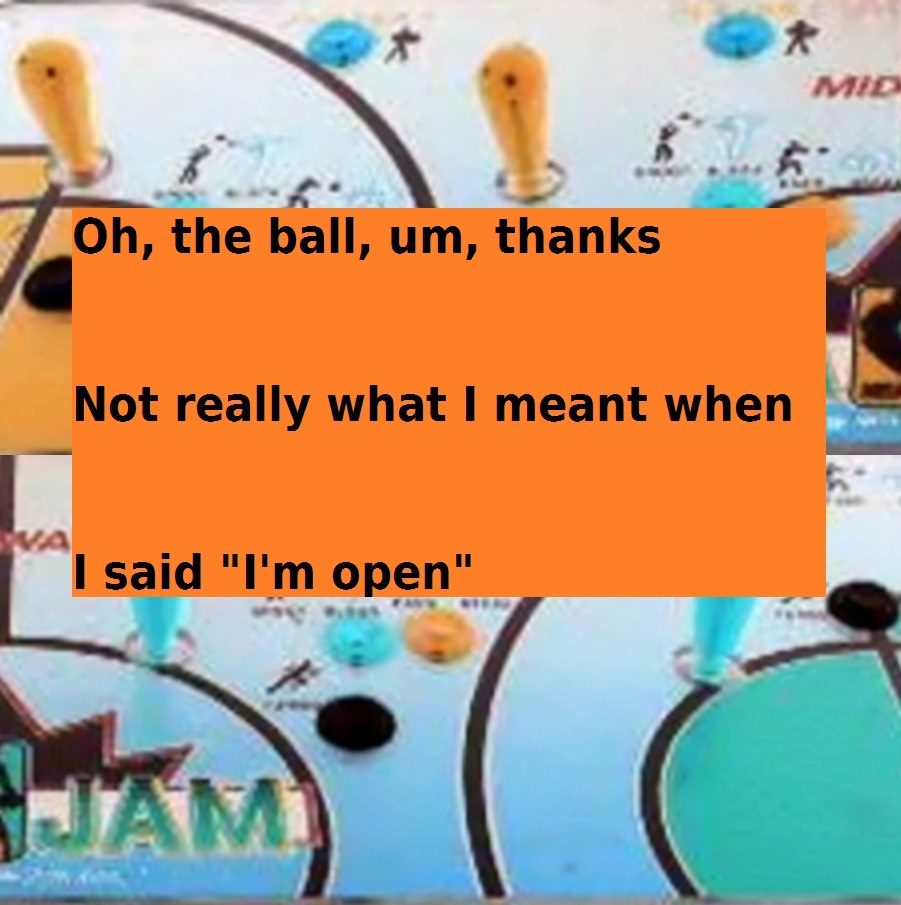
How do you navigate your visibility? In the wake of this shared nightmare, a lot of us are trying to lay low (enough). "Is there a 'too visible' for you" asked the interviewer.
I’m frustrated and afraid. I guess I try to stay out of obvious traps by avoiding certain tags, but that’s only after witnessing what other people have gone through.
I don’t know exactly where the “too visible” line is, to be honest, but one thing I’ve complained about a lot is that there’s this apparent dichotomy for women writers that dictates how we’re allowed to operate. We’re either “professional victims” or “irrelevant cowards.”
It’s obviously a very malicious contingent that represents the worst of this sexist attitude, but I think that risk-averse platform holders do this to women professionals as well, only placing considerable visibility on us when we’re in enough misery for it to be commodifiable.
Women’s pain is an endless capital resource, apparently, and so we’re less interesting for our work than we are as tragic figures. I don’t think women ourselves are doing this “professional victim” thing—I think most will say that they want to be remembered for making a positive impact through their work— but I think the way the media pays attention to us can definitely help reinforce this cultural notion about our motives.
I guess my way of getting around this as much as possible was to “quit" the industry. I’m still writing about play and making digital art, including games, but I’m pretty much choosing to shun industry events. I’ve put a moratorium on writing about retail games. I worry that this is the coward’s way out and a middle-state between actually just quitting or sticking around, but I’m not prepared to give up on my life’s work just yet.
Also, this allows me to broaden my scope to being beyond games, allowing me to turn my theories of play outward and help insinuate games into arts and culture even more. I guess that’s my way of subverting the system and undermining corporate media and cultural insularity.
With an essay title like "Jupiter is a Failed Star because It Didn't Want It Hard Enough" , you seem to enjoy playing up the self-indulgence of criticism while hitting hard with solid rhetoric and politics. I think that makes the critique more accessible, that sort of self-heckling. Did you like the cookies I sent you?
I loved the cookies. They were crispy and sweet but not too sweet.
With that essay, I really wanted to bring together multiple competing strands of thought on the Kim Kardashian game, and I wanted to kind of situate the game within a larger scheme of capitalism which includes just about every other game on the market. I was trying to put things in perspective, I guess, where I was neither willing to condemn the game for being a commercial product nor apologize for its problematic elements, and to re-center the game away from Kim the person— someone who we know very little about— and look at it more as a cultural object on its own.
After all, it was made by a team of people with a particular design orientation. It exists in a continuum of mobile free-to-play games. There’s a lot to be said about how it interacts with class and gender and other axes that I wanted to dig into.
As for the title itself, I was sort of playing on this motif in the game’s ideology about fame and productivity— that success is always a product of hard work, and that everything can be boiled down to this meritocratic bootstraps ethic. I wanted to look at some of the brutally unfair ways this is applied to celebrity and how we turn famous people into public property and force them to shoulder all kinds of bizarre cultural hangups that we make them personally responsible for.
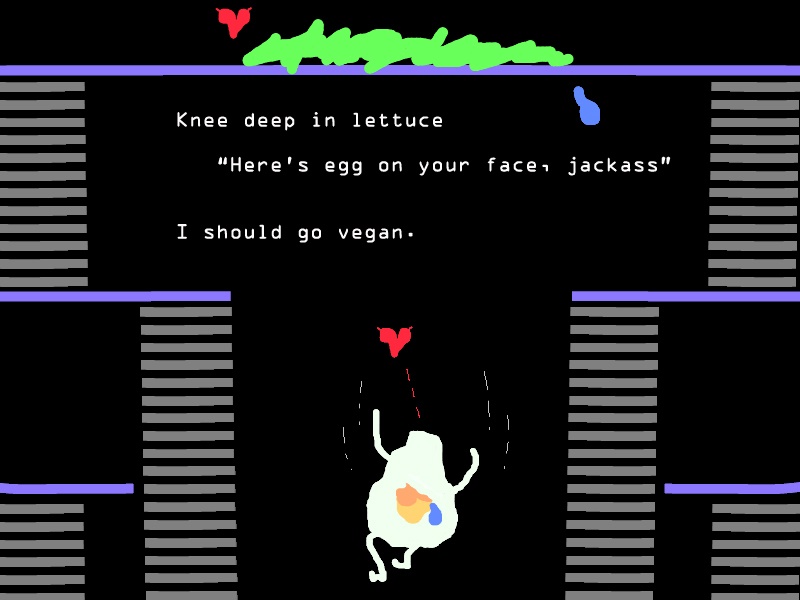
Your twine poem, Poetry followed you on twitter , seems to taunt the player--would you consider someone who interacts with a work like this a "player"? User? Collaborator? Well anyway the limited time in which the "player" has to enter contributions to a work of art about how little poetry cares for their existence seems to taunt and heckle the user and I like this.
I guess “player” is fine. In my pieces on poetry and play I referred to the “reader-player,” since I think attention to formal demands is being split in a number of interesting ways in forms like interactive poetry.
But yeah I definitely wanted to achieve a feeling of ephemerality and relative indifference with the poem, to kind of demonstrate the way Twitter’s chronological feed sort of carelessly erases history while simultaneously building on top of it.
I’m also interested in this idea of poetry as a kind of dynamic system or word-architecture that can use things like performance and spatiality and grammar and stanzaic structure and improvisation to not only build a sense of player response but also elicit very specific feelings in ways which often transcend the text itself, or are a product of the text and its surrounding structures.
My favorite games to draw haikus for you from were I guess what we would call “party games”—Mario Kart, Super Smash Bros. I find the ways people interact through games more compelling than narrative. But these sorts of games figure rarely, if at all, into games criticism. Do you think there's anything of value to be learned from analyzing Mario Tennis?
Sure there is! Samantha Allen’s final piece of games criticism is a fantastic look at Mario Kart and muscle memory or assumed knowledge. I’ve also written plenty on what I see as “idle play”—games which promote exploration and aimlessness and model alternatives to more goal-oriented design we’re used to seeing.
Mario Kart and Smash are still pretty goal-oriented, but I think the way they engage players casually as “party” games is neat and Smash in particular has developed this super interesting body of folk knowledge that only happens when passionate players who’ve grown up with the game are willing to share these insights with each other.
I think there’s probably a lot of untapped criticism in those areas, and especially having hung out with plenty of Smash tournament regulars myself, I’m intrigued by how players are able to relate to these games that are based around these ideas of “good fun.”
Tell me about your favorite—if you have one—power up or item in a game. Or at least one that has a particular aesthetic resonance with you.
So, one of my favourite game series ever is Cho Aniki, and most of the games in the cannon are these side-scrolling shmups. But they’re all really surreal and extremely homoerotic. I remember in one of them—Cho Aniki: Seinaru Protein Densetsu— you play as two bodybuilders, Samson and Adon, and your special power is this white, personified glob of “Holy Protein,” that is—OK, it’s definitely semen.
The game just sort of offers very general gun power-ups for the glob, but what I love about it is that when you want to do this special attack, Samson and Adon sort of do this pelvic thrust gesture and then this white spray shoots out of their heads and sort of trickles out like liquid as it reaches its cooldown. Also the semen has a voice actor and sort of looks like the Pillsbury Doughboy without the hat. It’s kind of adorable.
I can’t speak for the intentions of the game’s creators but I definitely appreciate this sort of queered version of the shmup, and it’s a nice reminder of games’ relationship to the body and also of their fundamental weirdness. Why can’t semen also be a schmup gun? Why can’t it be a little man that fires out of two muscle dudes’ heads at a giant worm with a human face?
Games can be anything and it’s gorgeous.
And now, a question and answer entirely in French . . .
Une "vie supplémentaire" pour le bilingue. Quels sont vos projets pour l'hiver?
Pour l’hiver j’aimerais bien mettre à jour un amas de littérature que j’ai toujours l’intention de lire mais jamais le temps ou bien l’énergie. Le problème c'est que le travail intellectuel, c'est mon boulot. Ce qui arrive toujours quand j'ai l'occasion de relaxer c’est que… Je ne fais rien. Comme, je regarde au Netflix, je perds mon temps a Twitter, je me rends aussi inactive que possible.
À part de cela, j'ai une pièce a écrire pour The Arcade Review qui sera publiée je pense au début de l’hiver (mais je ne sais pas vraiment). De plus, j'ai toujours des essais ou quelque chose à publier sur Sufficiently Human chaque mois. Puisque j'ai déja atteint mon dernier but a Patreon j’espère d’être bientot capable de mettre a coté un peu d'argent pour fonder un journal des arts un petit peu comme Ver Sacrum dans le sens que j’accepterais toute sorte d'art contemporain, ainsi que la critique. Ça veut dire que je m'intéresse pas seulement aux jeux vidéos mais aussi aux lettres, aux arts graphiques, aux illustrations, à la musique— n'importe quoi. J'aimerais suggérer avec le journal que tous les arts sont important et possèdent chacun le potentiel pour être profond, émouvant, provoquant, etc. Je veux dire aussi que, même si j’aime les jeux au fond, je ne crois pas qu’elles sont pariculièrement exceptionnelle ou qu’elles devraient être isoler des autres formes. Je trouve qu'il y a une tendance dans le discours des jeux de les traiter comme l'analyse comparative avec les autres formes constitue “le colonialisme intellectuel” et je trouve ça ridicule.
Si j'ai le temps j'aimerais reprendre concevoir des petites jeux— peut-être quelque chose plus compliquée dans Twine ou un autre programme. J'ai une idée pour un jeux dont l’éspace est construit avec des cartes du Tarot. En fait, j'ai voulu faire ça pour l’Halloween mais pendant quelques mois je me suis trouvée à peine motivée juste pour concentrer sur mon écriture. Peut-être je vais garder l’idée pour l’année prochaine et tenter à penser à quelque chose qui inspire des sensations plus hivernaux. Mais on va voir.






